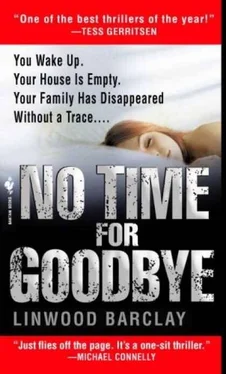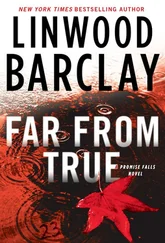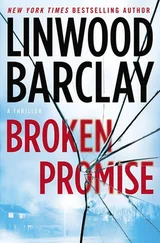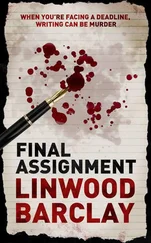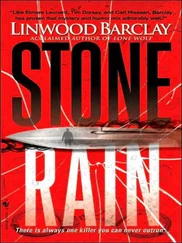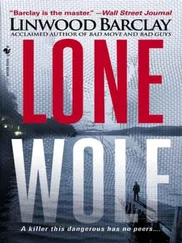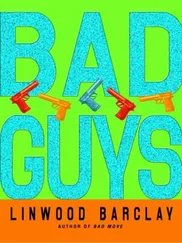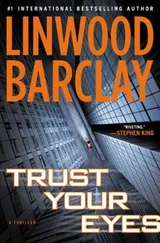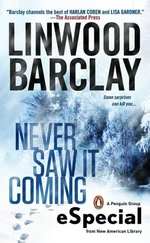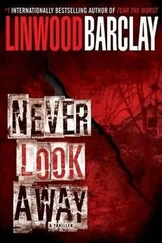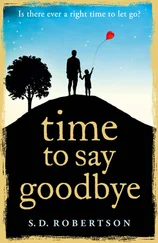“My God,” I said. “And the shutters…are they green? A dark green?”
She cocked her head slightly to one side, as if checking. “Yes, they are.”
“And under the windows, are there window boxes?” I asked. “For flowers? And are the flowers petunias? Are you able to tell that? It’s very important.”
She nodded very slowly. “Yes, you’re exactly right. The window boxes are full of petunias. This house. You know this house?”
“No,” I said, shrugging. “I’m just making this up as I go along.”
Ceylon’s eyes flashed open in anger. “You son-of-a-bitch motherfucker.”
“I think we’re done here,” I said.
“You owe me a thousand dollars.”
Fool me once, shame on you. Fool me twice…
“I don’t think so,” I said.
“You pay me a thousand dollars, because…” She was trying to think of something. “I know something else. I’ve had another vision. About your daughter, your little girl. She’s going to be in great danger.”
“Great danger,” I said.
“That is right. She’s in a car. Up high. You pay me, and I can tell you more so you can save her.”
I heard a car door slam shut outside. “I’m having a vision of my own,” I said to her, touching my fingers to my temples. “I see my wife, coming through that door, any second now.”
And so she did. Cynthia surveyed the living room without saying a word.
“Hi, honey,” I said, very offhand. “You remember Keisha Ceylon, world’s greatest psychic. She was having a tough sell here on the conjuring-up-the-past thing, so now, in a last-ditch attempt to get a thousand bucks out of us, she’s concocted a vision involving Grace’s future. Trying to exploit our most basic fears, if you will, when we’re at our lowest point.” I looked at Keisha. “That about right?”
Keisha Ceylon said nothing.
To Cynthia, I said, “How’d things go down at the funeral home?” I glanced at Keisha. “Her aunt just died. Your timing couldn’t be better.”
It all happened so fast.
Cynthia grabbed the woman by the hair and yanked her right off the couch, dragged her screaming to the front door.
Cynthia’s face was red with fury. Keisha was a big woman, but Cynthia whipped her across the floor like she was stuffed with straw. She ignored the woman’s screams, the stream of obscenities coming out of her mouth.
Cynthia got her to the door, opened it with her free hand, and pitched the con artist out onto the front step. But Keisha couldn’t regain her footing, and stumbled down the stairs, going headfirst into the lawn.
Before Cynthia slammed the door, she shouted, “Leave us alone, you opportunistic, bloodsucking bitch.” Her eyes were still wild as she looked at me, catching her breath.
I felt as though the wind had been knocked out of me as well.
After the service, the funeral home director took me and Cynthia and Grace in his Cadillac down to Milford Harbor, where he kept a small cabin cruiser. Rolly Carruthers and his wife, Millicent, followed, having offered to give Pamela a ride with them in their car, and the three of them joined our family on the boat.
Once we had left the sheltered harbor, we put out into the Sound, only about a mile, out front of the beach houses along East Broadway. I’d always thought it would be great to have one of those places, certainly as a kid, but when Hurricane Gloria swept through in 1985, I started to have second thoughts. It was hard to keep all the hurricanes straight if you lived in Florida, but the ones that hit Connecticut you tended to remember.
Fortunately, given the nature of our task out there on the water that day, the winds were light. The funeral director, a man whose charm seemed genuine rather than forced, had brought along the urn containing Tess’s ashes, which were to be scattered onto Long Island Sound, as Tess had requested when making the arrangements for her own funeral.
There wasn’t a lot of conversation on the boat, although Millicent made an attempt. She put her arm around Cynthia and said, “Tess couldn’t have had a more beautiful day to see her final request carried out.”
Maybe, if Tess had actually died from an illness, there might have been some comfort in this, but when someone dies by violence, it’s hard to find consolation anywhere.
But Cynthia attempted to take the comment in the spirit it was offered. Millicent and Rolly had been friends to her long before I’d even met her. They were an unofficial aunt and uncle, and had always looked in on her over the years. Going way back, Millicent had grown up on the same street as Cynthia’s mother, Patricia, and even though Patricia had been a few years older, they had become friends. When Millicent met and married Rolly, and Patricia met and married Clayton, the couples saw each other socially, and that was how Millicent and Rolly had the opportunity to watch Cynthia grow up, and take an interest in her life after her family had disappeared. Although it was Rolly, more than Millicent, who was most there for Cynthia.
“It is a beautiful day,” Rolly said, echoing his wife. He approached Cynthia, his eyes looking down at the deck, perhaps figuring this would help him keep his footing as the boat went over the choppy water. “But I know that doesn’t make any of this any easier to bear.”
Pam approached Cynthia, teetered a bit, probably thinking that heels weren’t that great a thing to wear on a boat, and gave her a hug. “Who would do this?” Cynthia asked her. “Tess never meant any harm to anyone.” She sniffed. “The last person from that part of my family. Gone.”
Pam pulled her closer. “I know, love. She was so good to you, so good to everyone. It had to be some sort of a crazy person.”
Rolly shook his head in disgust, a kind of “what’s the world coming to” gesture, and walked down to the stern to watch the boat’s wake. I came up alongside him. “Thanks for coming today,” I said. “It means a lot to Cynthia.”
He looked surprised. “You kidding? You know we’ve always been there for both of you.” He shook his head again. “You think that’s what it was? Some sort of crazy person?”
“No,” I said. “I don’t. At least not in the sense of it being a total stranger. I think Tess was killed by someone for a specific reason.”
“What?” he asked. “What do the police think?”
“They haven’t got a clue, far as I can tell,” I said. “I start telling them all this stuff that happened years ago, you see their eyes start to cloud over, like it’s too much for them to take in.”
“Yeah, well, what do you expect?” Rolly asked. “They got their hands full trying to maintain peace in the here and now.”
The boat slowed to a stop, and the funeral director approached. “Mr. Archer? I think we’re ready.”
We gathered tightly together on the deck as the urn was placed formally in Cynthia’s hands. I helped her open it, both of us acting as though we were handling dynamite, afraid that we might drop Tess at the wrong moment. Grabbing it firmly between both hands, Cynthia moved to the side of the boat and upended the urn while Grace and I and Rolly and Millicent and Pam watched.
The ashes fell out and settled on the water, dissolved and dispersed. In a few seconds, what physically remained of Tess was gone. Cynthia handed the urn back to me, and for a moment appeared light-headed. Rolly went to support her, but then she held out her hand to indicate she was okay.
Grace had brought a rose-her own idea-which she cast upon the water.
“Goodbye, Aunt Tess,” she said. “Thank you for the book.”
Cynthia had said that morning that she wanted to say a few words, but when the time came, she didn’t have the strength. And I could find no words that I thought were any more meaningful, or heartfelt, than Grace’s simple farewell.
Читать дальше
